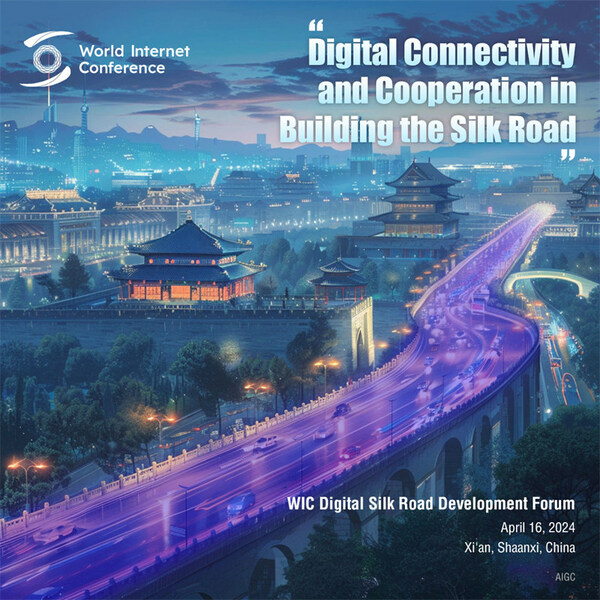BEIJING, April 17, 2024 /PRNewswire/ — A news report from chinadaily.com.cn:
The Digital Silk Road Development Forum of the World Internet Conference aims to build a platform for exchanges and cooperation among countries and regions involved in the Belt and Road Initiative, promote the construction of network infrastructure, reduce the digital divide and create a better digital future, according to a senior WIC official.
“It is the first time that the WIC is holding a thematic forum centered on the Digital Silk Road, which combines the development of the digital economy with the Belt and Road Initiative,” said Ren Xianliang, secretary-general of the World Internet Conference.
By advancing the construction of the Digital Silk Road, Ren said China has deepened exchanges and cooperation with BRI economies in fields including digital infrastructure, digital technologies and digital market, promoted the digital transformation of related countries and regions, effectively narrowed the digital divide, and shared digital achievements.
Themed “Connectivity and Shared Prosperity”, the WIC Digital Silk Road Development Forum on Tuesday in Xi’an, Shaanxi province, will focus on three topics — “Digital Connectivity and Cooperation in Building the Silk Road”, “Silk Road E-commerce International Cooperation” and “Digital Villages and Sustainable Development”.
Organizations and enterprises from nearly 50 countries and regions, including the Global System for Mobile Communications Association (GSMA), the Shanghai Cooperation Organization, Intel, SAP, Nokia, Micron, ZTE and Alibaba have confirmed their participation in the forum.
The WIC held a member representative symposium on Monday. Cross-border e-commerce training classes and seminars on assessing the competitiveness of cross-border e-commerce will be launched to cultivate the relevant talent for BRI economies and provide practical experience for the innovative development of the cross-bolster e-commerce industry, Ren said.
China has made significant progress in the construction of the Digital Silk Road.
By end-2022, China had signed memorandums of understanding on building the Digital Silk Road with 17 countries, and on e-commerce cooperation with 30 countries, according to a white paper released by China’s State Council Information Office.
Noting that the Silk Road e-commerce connects BRI economies and promotes economic development, Ren said the Digital Silk Road cross-border e-commerce workshop, which will officially kick off on Wednesday, is conducive to deepening exchanges and cooperation among China and other BRI economies, and building an exchange and mutual learning platform about the cross-border e-commerce industry.
Professionals and experts from the International Trade Center, the E-Commerce Business Alliance Expert Committee of the Asia-Pacific Economic Cooperation, comprehensive pilot zones for cross-border e-commerce, universities and cross-border e-commerce enterprises will be invited to discuss the new opportunities, challenges and the best practical experience in the fast-developing sector during the workshop, Ren said.
He added that the forum is also expected to bolster the facilitation of cross-border e-commerce, promote data flows and sharing, as well as allow more countries and regions to share new development opportunities brought about by digital technologies.
China’s cross-border e-commerce sector has become an important driving force for bolstering development of the nation’s foreign trade, experts said.
Data from the General Administration of Customs showed that, based on preliminary calculations, the import and export scale of the country’s cross-border e-commerce transactions reached 577.6 billion yuan ($79.8 billion) in the first quarter of this year, up 9.6 percent year-on-year.

















